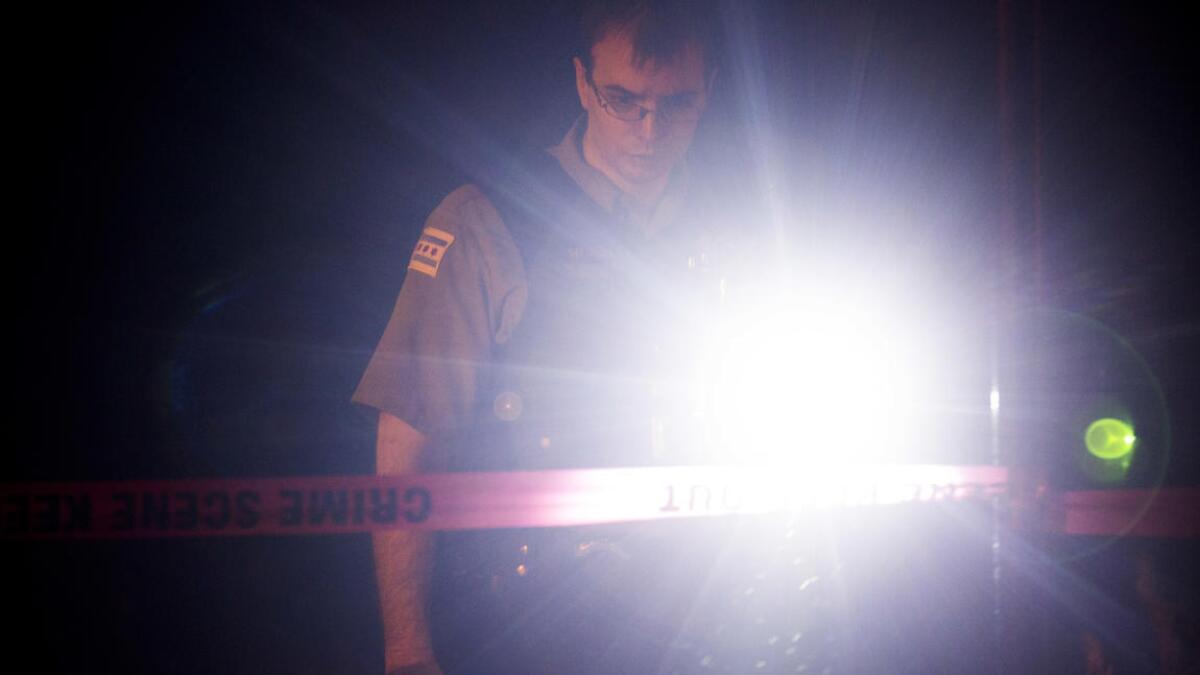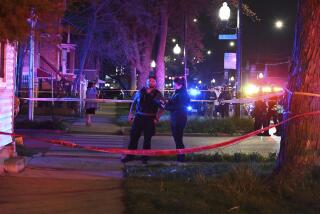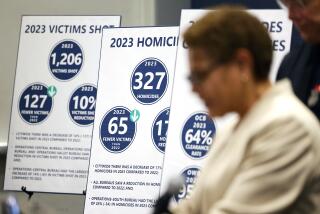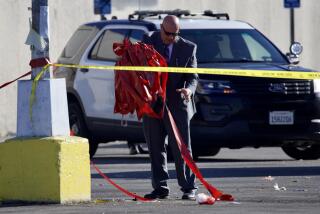78 homicides, more than 400 people shot: This month has been Chicago’s most violent in 20 years

In the weeks since he was shot in the back, 10-year-old Tavon Tanner has undergone several operations to repair the damage from the bullet that tore through him and remains lodged between his shoulder and his chest.
The fifth-grader is still in the hospital and still in pain, according to his mother, Mellanie Washington. He doesn’t talk as much and cries more often. Sometimes he’ll ask whether police have arrested the person who shot him.
“I tell him they will soon,” Washington said. “They will.”
Tavon was among more than 400 people shot in Chicago this month. There have been at least 78 homicides, making August the most violent month in the city in almost 20 years, according to data provided by the Chicago Police Department. And there are two more days to go.
The city hasn’t seen a deadlier month since October 1997, when there were 79 homicides. For that whole year, the count was 761, according to department numbers. Chicago has recorded 487 homicides and more than 2,800 people shot this year, compared with 491 homicides and 2,988 people shot all of last year, according to data kept by the Chicago Tribune.
Chicago has a lower homicide rate than many other U.S. cities that are smaller in population. But this year, the city has recorded more homicides and shooting victims than New York City and Los Angeles combined, even though the populations of the two cities are larger than Chicago’s population of about 2.6 million.
New York, with more than three times the population of Chicago, has recorded 760 shooting victims and logged 222 homicides, according to police statistics through Aug. 21. In Los Angeles, a city of about 4 million, 729 people have been shot and 176 people have been slain, according to police data through Aug. 20. The gun violence in Chicago has been concentrated on the South and West sides, which have lost population over the years as other areas have grown.
The Harrison District on the West Side, for example, has had almost 400 people shot this year after logging 350 all of last year. Englewood saw 330 people shot all of last year and has tallied close to 300 this year.
The Harrison District covers a lot of the Lawndale neighborhood, where Tavon lives. The boy was playing out front with his twin sister in the 3900 block of West Polk Street when someone fired as many as nine shots.
He collapsed as he followed his mother through the front door. His twin sister, Taniyah, sat next to him, holding his hand, trying to keep him calm, according to their mother.
“Twin don’t leave me, twin don’t leave me,” she kept yelling.
Tavon was taken to Mount Sinai Hospital, where he underwent nearly four hours of surgery, Washington said. The bullet damaged his pancreas, intestines, kidney and spleen as it entered his lower back and lodged in his chest, she said.
In the hours before Tavon was shot, a man in his early 20s was shot in the head at a basketball court down the block where Tavon was not allowed to play. And an older man was shot and killed about four blocks away.
Tavon’s sister started school last week without her brother. Washington, who has spent the last couple of weeks in the hospital with her son, said she feels restless as her son’s future remains uncertain.
“Oh, I’m real tired,” she said. “Just waiting on him to get better.”
Police officials have cited the constant flow of illegal firearms through dangerous neighborhoods and an intractable gang problem — with some disputes beginning on social media platforms such as Facebook and Twitter — as strong contributors to the city’s violence.
In recent months, Police Supt. Eddie Johnson has been pushing lawmakers in the state capital, Springfield, to pass legislation requiring harsher sentences for criminals arrested repeatedly for carrying illegal guns.
This month, Johnson met with several police chiefs from across the country to discuss the nation’s gun violence problem, noting that more than 40 cities experienced jumps in violence last year after years of decreases in the number of killings.
Cities like Milwaukee and Washington — both much smaller than Chicago in population — saw homicide increases that they haven’t experienced in more than two decades.
The surge in violence comes at a tumultuous time for the Chicago Police Department. It is still dealing with the aftermath of the court-ordered release of video showing Police Officer Jason Van Dyke shooting Laquan McDonald 16 times, killing the teen as he walked away from police with a knife in his hand.
The public furor from the video’s release in November led Mayor Rahm Emanuel to fire Garry McCarthy as the police superintendent. Murder charges were filed against Van Dyke, the head of the police oversight agency resigned, and the U.S. Department of Justice began a wide-ranging civil rights investigation into the department.
Earlier this year, the Chicago Tribune reported a precipitous drop in morale among the city’s police officers, based on interviews with them.
Jeremy Gorner, Peter Nickeas and Elvia Malagon write for the Chicago Tribune.
More to Read
Start your day right
Sign up for Essential California for news, features and recommendations from the L.A. Times and beyond in your inbox six days a week.
You may occasionally receive promotional content from the Los Angeles Times.






